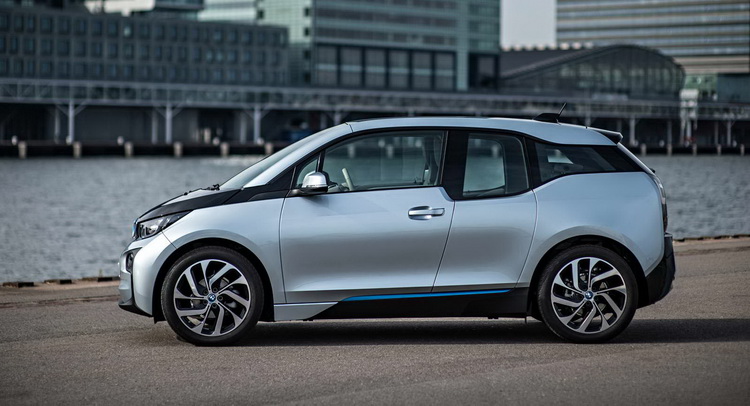BMW Group CEO Norbert Reithofer thinks politics can greatly influence sales of their i3 model and urges Germany to catch up to Northern Europe and California in terms of EV infrastructure.
Reithofer points to Norway when talking about infrastructure, since the German automaker sold 2,000 i3s last year in the region, almost a quarter of the market’s overall BMW sales. Norway also offers a solid infrastructure with free parking and charging for their electric vehicles, plus no sales or registration taxes.
Another great example is California where BMW sold about 3,000 i3s in 2014, which made for half of the total number sold in the U.S. In Cali, EV drivers are also allowed to use dedicated highway carpool lanes – which is amazing since the traffic can be an absolute nightmare over there.
As for Shanghai, the BMW i3 isn’t subject to a restrictive licensing process and buyers can save more than 10,000 euros.
Reithofer makes a strong case, especially since they only sold 2,100 i3s in Germany in 2014 – just 1% of all BMW sales in the country. That sounds unacceptable even to us.
In an interview with Autonews Europe, he added that “the German car makers have delivered their part of the bargain. The ball is in now in the court of policymakers,” while also being quoted as saying that Germany needs to “pick up the pace” as far as EV infrastructure is concerned.
Picking up the pace is exactly what Germany needs to do if their goal of having 1 million EVs on the roads by 2020 is to be met. The German government does plan on offering further incentives that might boost interest in EVs, but we still don’t know exactly how they’ll go about doing it.
Considering the fact that we all know where this is headed, there’s no reason to think that Germany won’t catch up to other markets when it comes to i3 and i8 sales. As EVs become more popular, the whole world should expect a major infrastructure change in the not so distant future.












